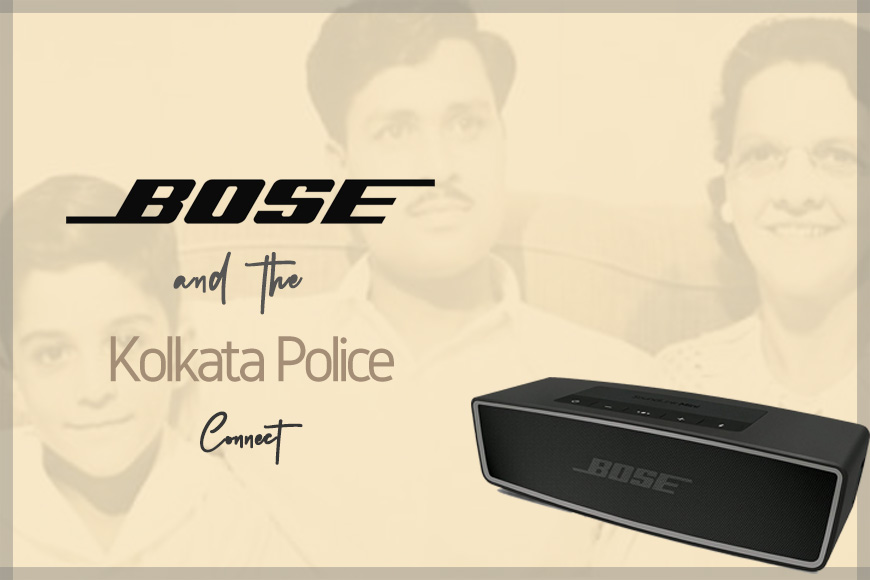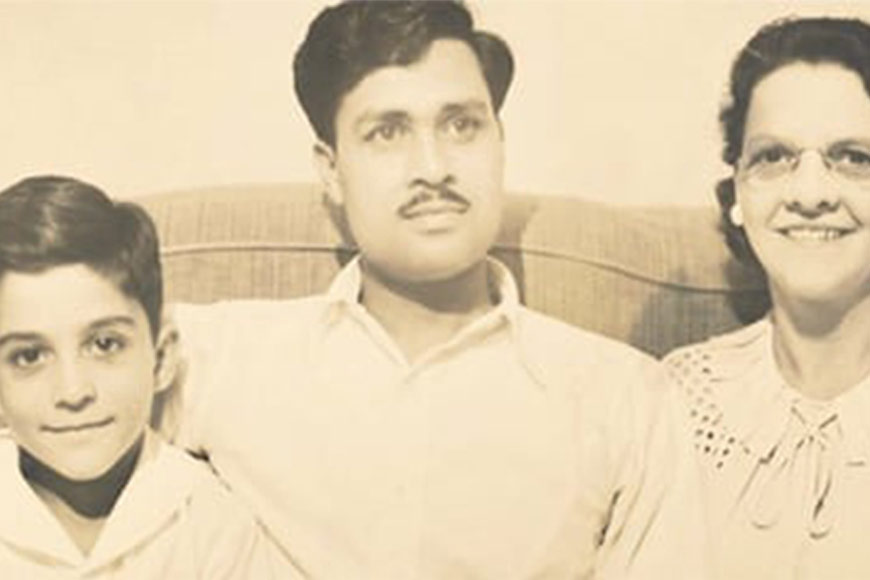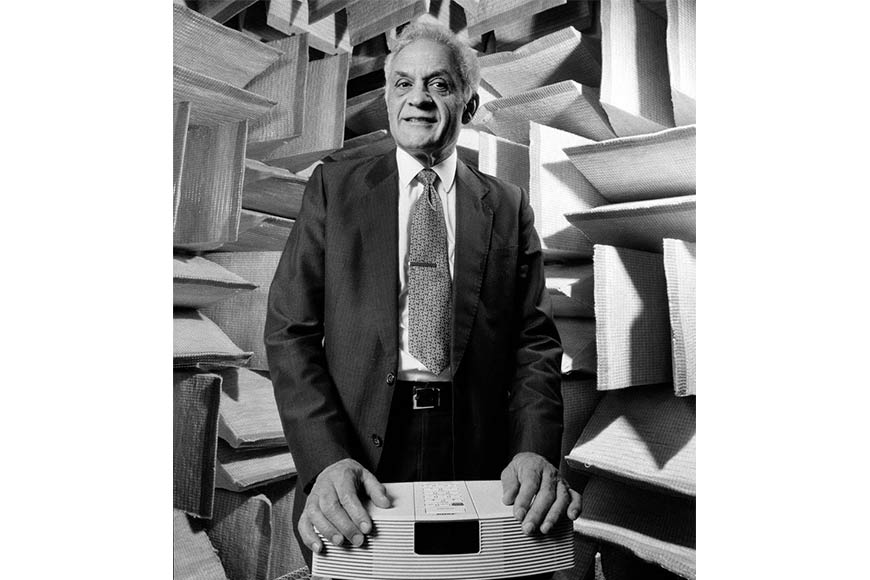Calcutta Police and the BOSE connect

BOSE. In all caps. As opposed to Bose, a common Bengali last name. But BOSE is both a Bengali last name, and a global synonym for advanced, high-end excellence when it comes to audio systems. All of it courtesy the late Dr Amar Gopal Bose, Bengal’s and India’s contribution to the world of high-performance, premium quality auto suspension technology.
And to think that had it not been for Kolkata Police, there may have been no BOSE at all.
 Amar Bose, in his childhood, with his parents Noni Gopal Bose and Charlotte Bose
Amar Bose, in his childhood, with his parents Noni Gopal Bose and Charlotte Bose
This extraordinary statement naturally deserves further explanation, for which we must go all the way back to 1920. With Mahatma Gandhi having launched his Non-Cooperation Movement against the British Raj, thousands of Indian youths were taking to the streets as part of non-violent, but very noisy, demonstrations and marches.
One such demonstration in Kolkata (then Calcutta) included a student of Physics at the University of Calcutta, Noni Gopal Bose. Held near Elgin Road, the demonstration saw the distribution of pamphlets containing a highly charged write-up by Noni Gopal, denouncing British rule and making an impassioned demand for independence.
With his examinations round the corner, however, the pamphlet was the best that Noni Gopal could do at that point, and he went back home after the demonstration, presumably to study. And it was at this point that Calcutta Police decided to change his life, and the history of the electronics industry. On the hunt for the pamphlet writer, they reached Noni Gopal’s house and arrested him.
 Amar Bose
Amar Bose
When he got off the ship, young Noni Gopal had just about 5 US dollars (approximately Rs 370 in today’s terms) in his pocket, and not a single scrap of paper to prove his identity.
Presented in front of a magistrate the next morning, Noni Gopal was sent to prison, and naturally missed his examinations. However, en route to court for a follow-up hearing a few days later along with other revolutionaries, he managed to escape from police custody, and vanished. Naturally, Calcutta was no longer safe for him, and with help from friends and family, he fled to Chennai (then Madras), and found passage on a ship bound for New York, USA.
In later years, Amar Gopal would describe his mother as “more Bengali than I”.
When he got off the ship, young Noni Gopal had just about 5 US dollars (approximately Rs 370 in today’s terms) in his pocket, and not a single scrap of paper to prove his identity. However, thanks to the help he received from several resident Indians, including members of the Ghadar Party, he found a place to stay near Philadelphia, and set up a small radio repairing business. Soon enough, he met a local schoolteacher named Charlotte, an American of French-German descent who was deeply interested in Hindu and Vedanta philosophy. The two got married, and their son Amar Gopal was born on November 2, 1929, nine years after Noni Gopal’s arrest by Calcutta Police. In later years, Amar Gopal would describe his mother as “more Bengali than I”.
Two years before his death in 2013, Amar Gopal donated his company to MIT, making his alma mater the owners of one of the world’s most premium audio equipment brand.
The son of a revolutionary ushered in a different kind of revolution in the electronics industry. Having spent his childhood watching and learning the basics of electronics at his father’s workshop, Amar Gopal went on to study at the Massachusetts Institute of Technology (MIT) and became an electrical and sound engineer, serving MIT as a professor for over 45 years.
 Bose headquarters at Framingham, Massachusetts
Bose headquarters at Framingham, Massachusetts
However, what the world will remember him for is BOSE Corporation, which Amar Gopal established in 1964 on the basis of a few patents granted to him, particularly the one for loudspeaker design. Beginning life as a humble start-up, Amar Gopal’s company eventually became an iconic global brand, with a current employee strength of over 8,000, and annual revenues of over 3.5 billion US dollars. Two years before his death in 2013, Amar Gopal donated his company to MIT, making his alma mater the owners of one of the world’s most premium audio equipment brand.
Now imagine what would have happened had Calcutta Police not arrested Noni Gopal, and the young revolutionary not escaped the country. No matter what else happened, it is probably certain that the world would have been deprived of BOSE.










